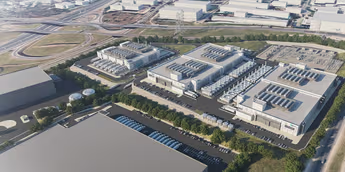Nigerians in UK Fear Rising Racism After BBC Expose

By Erewunmi Peace
A recent BBC Panorama investigation has sparked widespread concern among Nigerian residents in the United Kingdom after uncovering evidence of racism, misogyny, and abuse of power within London’s Metropolitan Police.
The undercover footage, filmed at Charing Cross Police Station, revealed shocking remarks made by some officers about immigrants and minority communities. The exposé, which aired late last week, has drawn condemnation from human rights groups, lawmakers, and the public, renewing calls for deeper reform within the police force.
In the footage, officers were heard making offensive comments about immigrants and racial minorities, including derogatory remarks perceived as targeting Africans. The Metropolitan Police Commissioner, Sir Mark Rowley, described the behavior as “vile” and “unacceptable,” confirming that several officers involved have been suspended while an independent investigation is underway.
Following the broadcast, many Nigerians living in the UK have voiced growing unease about racial discrimination and bias in law enforcement. Some community leaders fear that such attitudes, if left unchecked, could erode trust between Black communities and the police.
“Many Nigerians in the UK are hardworking professionals and students who contribute meaningfully to society,” said Dr. Adebayo Akinola, a London-based community advocate. “Hearing those words from people meant to protect us is painful. It reminds us that racism remains an issue that needs honest conversation and real accountability.”
While the BBC investigation did not specifically focus on Nigerians, the revelations have intensified discussions among African diaspora groups about the experiences of immigrants in Britain. Several advocacy organizations, including the Nigerian-British Forum and the African Caribbean Society, have called for cultural sensitivity training and stronger anti-racism policies within the Metropolitan Police.
In response, the Met Police issued a public apology, stating that the force “does not tolerate racism, sexism, or any form of discriminatory behavior.” The Independent Office for Police Conduct (IOPC) has also opened a review to determine whether the incidents reflect a broader systemic problem.
British Home Secretary Yvette Cooper has described the situation as “deeply troubling,” urging the Metropolitan Police to act swiftly to restore public confidence. “The public must trust that their police officers uphold the highest standards of integrity and fairness,” she said in a statement.
For many Nigerians living in the UK, the BBC exposé has served as both a warning and a wake-up call — a reminder of the ongoing need for vigilance against racial prejudice and the importance of open dialogue between communities and law enforcement.
As investigations continue, immigrant groups are calling for stronger safeguards and fairer treatment for all residents, regardless of background, to ensure that everyone in Britain can feel protected — not profiled.




















































































































































































































































































































































































































































































































































































































































































































































































































































































































































































































































































































































































































































































































































